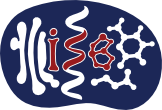Tursi NJ, Xu Z, Helble M, Walker S, Liaw K, Chokkalingam N, Kannan T, Wu Y, Tello-Ruiz E, Park DH, Zhu X, Wise MC, Smith TRF, Majumdar S, Kossenkov A, Kulp DW, Weiner DB. Engineered antibody cytokine chimera synergizes with DNA-launched nanoparticle vaccines to potentiate melanoma suppression in vivo. Front Immunol. 2023 Feb 23;14:1072810. doi: 10.3389/fimmu.2023.1072810. PMID: 36911698; PMCID: PMC9997082.
Abstract
Cancer immunotherapy has demonstrated great promise with several checkpoint inhibitors being approved as the first-line therapy for some types of cancer, and new engineered cytokines such as Neo2/15 now being evaluated in many studies. In this work, we designed antibody-cytokine chimera (ACC) scaffolding cytokine mimetics on a full-length tumor-specific antibody. We characterized the pharmacokinetic (PK) and pharmacodynamic (PD) properties of first-generation ACC TA99-Neo2/15, which synergized with DLnano-vaccines to suppress in vivo melanoma proliferation and induced significant systemic cytokine activation. A novel second-generation ACC TA99-HL2-KOA1, with retained IL-2Rβ/γ binding and attenuated but preserved IL-2Rα binding, induced lower systemic cytokine activation with non-inferior protection in murine tumor studies. Transcriptomic analyses demonstrated an upregulation of Type I interferon responsive genes, particularly ISG15, in dendritic cells, macrophages and monocytes following TA99-HL2-KOA1 treatment. Characterization of additional ACCs in combination with cancer vaccines will likely be an important area of research for treating melanoma and other types of cancer.

